Lack of integrated post-primary school places 'frustrating'
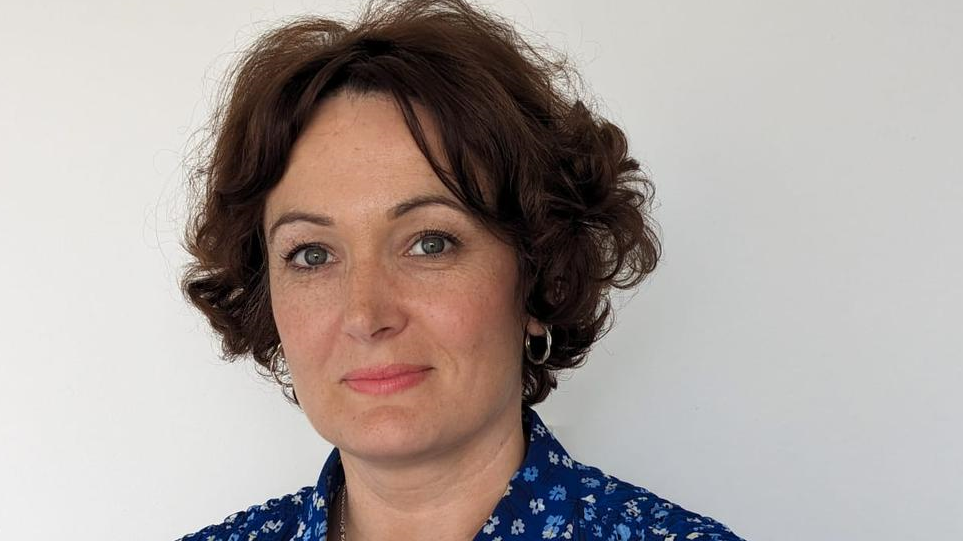
Fiona McGinn tried three different integrated post-primary schools but did not find a place for her sons
- Published
Every parent in Northern Ireland should get the chance to vote to change their child's school to an integrated one.
That is according to the chair of the Integrated Education Fund (IEF) Peter Osborne.
Analysis from the Department of Education (DE) suggests there are not enough places at integrated post-primary schools to meet demand in several areas of Northern Ireland.
That means some parents face a struggle to get their child a place in an integrated post-primary.
Fiona McGinn works for the IEF, but could not get an integrated post-primary school place for her own teenage sons in Belfast when she returned to Northern Ireland in 2023 after working abroad.
"I applied to three different integrated schools," she said.
"All three said they were over-subscribed and had very long waiting lists and basically we had no chance of getting in."
She said that she had found the situation "very difficult and very frustrating".
"We are in a system where there is supposed to be choice for parents, but in my case what I found suggested that a lot of parents don't get that choice," she told BBC News NI.
"I think parents should have a choice about what type of school they want to send their child to, whether that's controlled, maintained, integrated or Irish speaking."
"Every parent and child should have that choice, but it just doesn't seem at the minute there is that choice available."
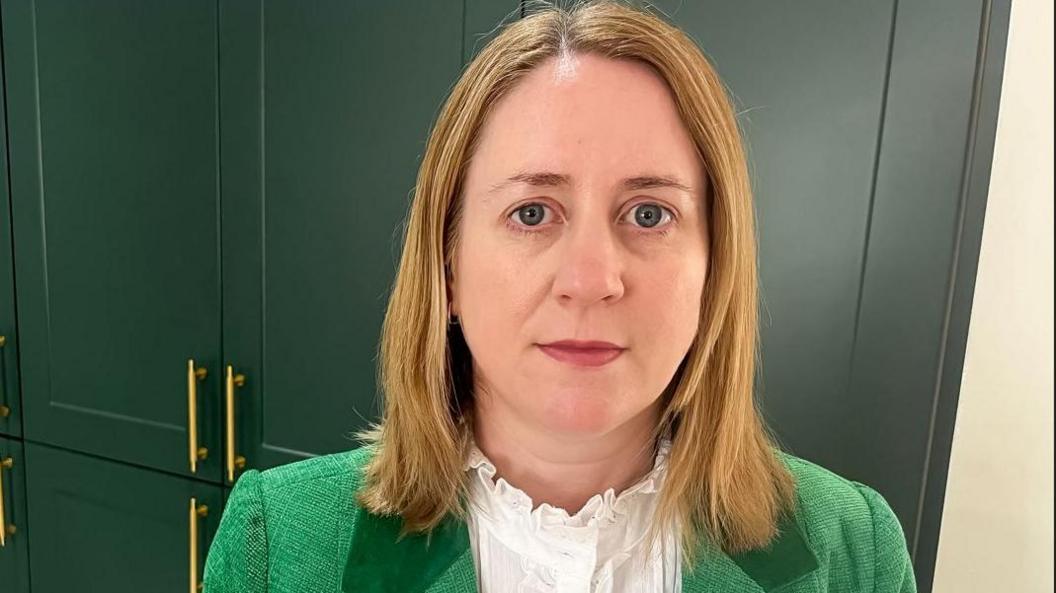
Fiona Taylor's son missed out on a place at an integrated school in 2020
Fiona Taylor, whose three children attended Oakwood Primary School, also experienced difficulties in securing an integrated post-primary school place.
Four years ago she had hoped to send her eldest son to Lagan College but missed out because it was oversubscribed.
At the time she wrote to the then education minister, the Education Authority, and the children's commissioner.
"I didn't get very far but I thought that my letters might help someone else in future."
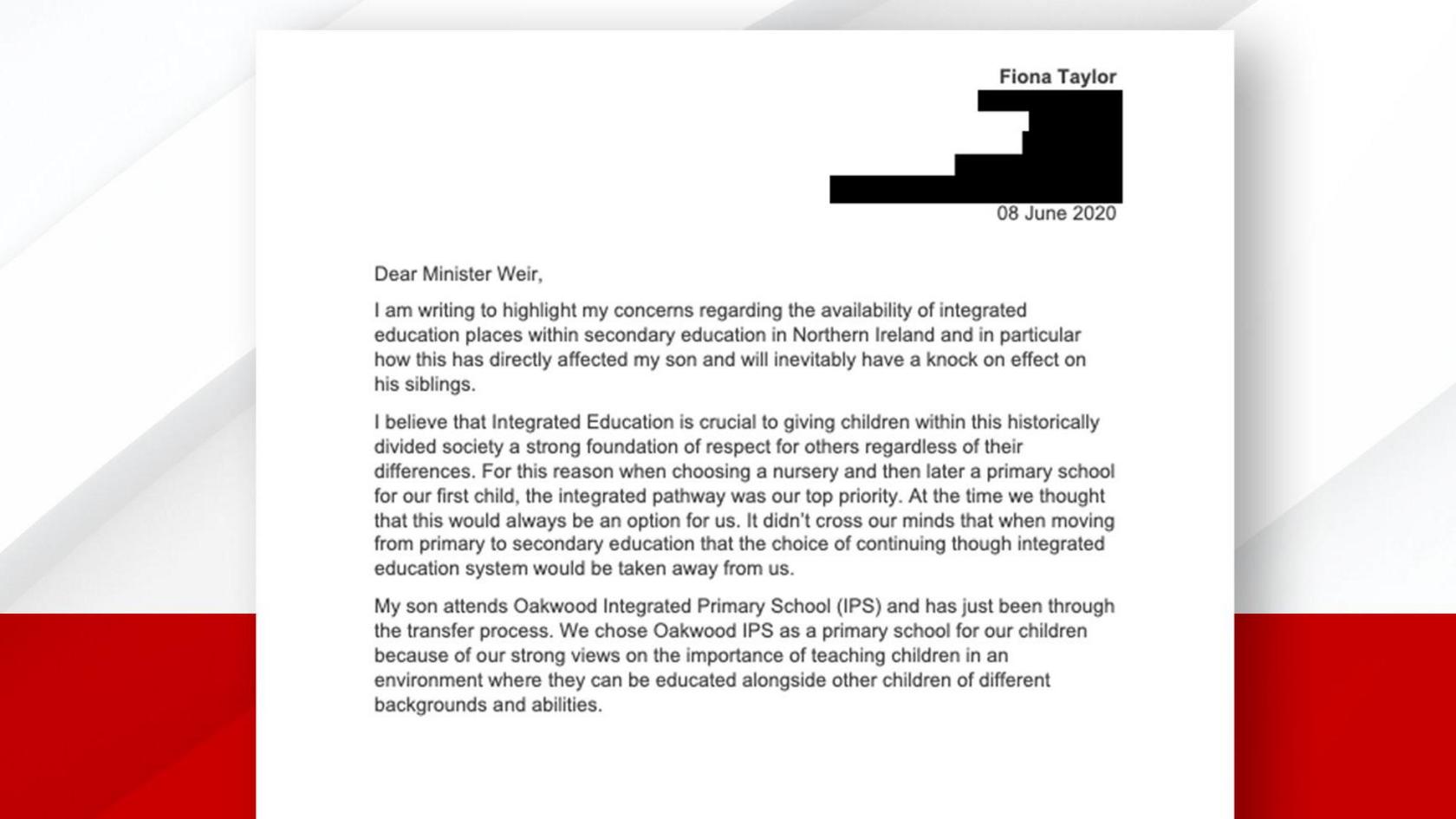
Fiona Taylor wrote to the then education minister about the availability of places
Ms Taylor said many of her son's friends were accepted into Lagan based on the criteria set that year.
"They did have older siblings at the school so that meant they were higher up on the list for selection," she added.
"That was disappointing as well as he then went to a school where he didn’t know anybody."
Ms Taylor said integrated education was important to her family because of the "ethos".
"I think really, in my personal opinion all schools should be integrated.
"There's a very high demand for integrated places and just not enough places to accommodate the children, forcing schools into a position where they have got to put some sort of selection criteria in place."
The Department of Education (DE) has published a progress report on the Integrated Education Act.
The act, which became law in 2022, means that DE has to "encourage, facilitate and support" integrated education.
In a number of areas the department said that "there is demand for post-primary integrated education in excess of supply".
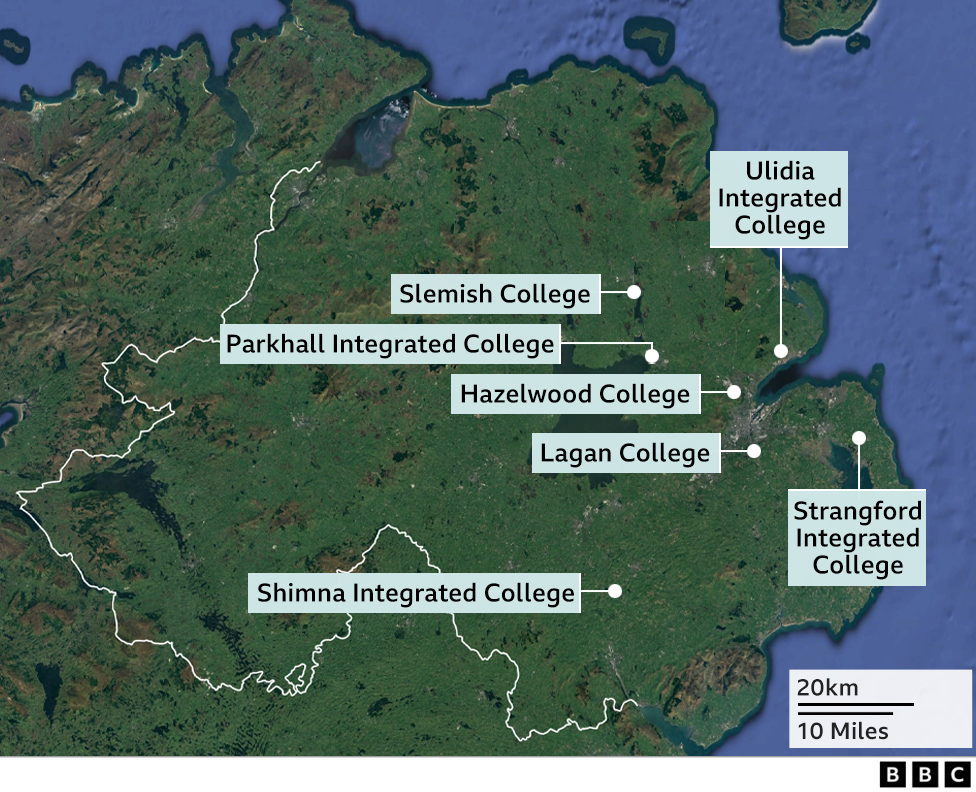
Post-primaries in six different council areas are over subscribed
That is the case in the council areas of Belfast, Lisburn and Castlereagh, Ards and North Down, Antrim and Newtownabbey, Mid and East Antrim, and Newry and Mourne.
But the DE report said that there was not "sufficient evidence" in those areas "to support the creation of integrated education provision by way of a new school."
However it also said that schools like Hazelwood College, Lagan College, Strangford College, Parkhall Integrated College, Ulidia Integrated College, Slemish College, and Shimna Integrated College in those areas were over-subscribed.
The department, though, concluded that there were a "broadly sufficient" number of integrated primary schools in Northern Ireland.
“Our analysis of over subscription data suggests that while there is broadly sufficient provision of integrated education at the primary school level to meet parental preference, the same cannot be said for post-primary provision,” the report said.
The DE report stated that while surveys suggested around two-thirds of people in Northern Ireland said they were "open to considering integrated education" that did not always lead to parents applying to send their children to integrated schools.
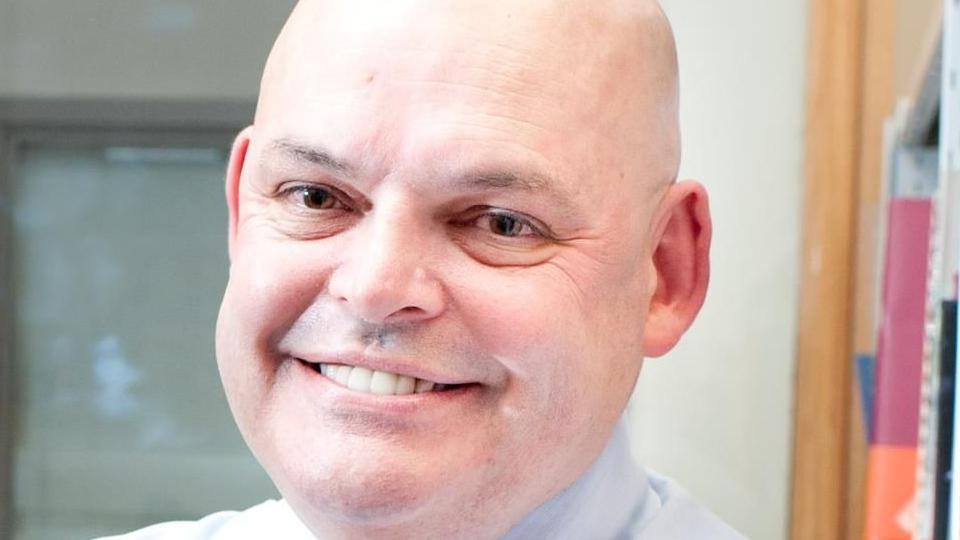
Peter Osborne says every parent should get the chance to vote on whether their school becomes integrated
Mr Osborne was among those questioned on the matter at Stormont's Education Committee.
He is a former chair of the Parades Commission and now chairs the Integrated Education Fund which supports the growth of integrated education.
Existing schools can change to become formally integrated as part of a process called transformation.
The process includes a vote by parents to see if a majority is in favour.
Mr Osborne told MLAs that there had been around 25 successful parental ballots for transformation over the past five years.
But he said that DE should enable parents in every school in Northern Ireland to vote on whether it should become integrated or not over the next ten years.
He said that each ballot would cost around £3,000 per school.
"Let's give the parents the choice," he said.
"It's not a huge amount of money and I would roll it out over ten years if I was the Department and say 'let's actually set a target, this is ambitious, of every school in Northern Ireland being given the option of whether they vote to go integrated or not.'"
Mr Osborne said the IEF was also set to mount a legal challenge to the department's strategy in response to the Integrated Education Act.
"In our view it's not adequate," he said.